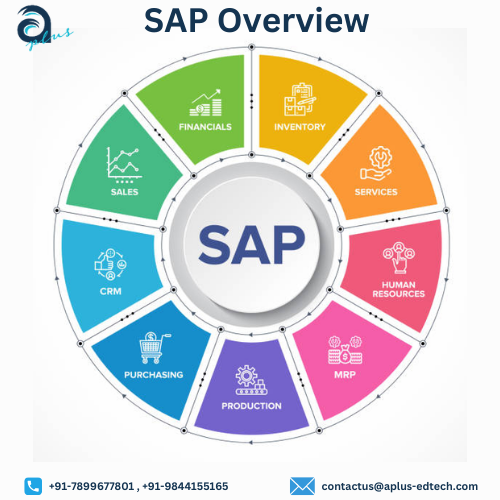Introduction to SAP
Founded in 1972, the company was initially called System Analysis programme Development (Systemanalyse programmementwicklung), later abbreviated to SAP. Since then, it has grown from a small, five-person endeavor to a multinational enterprise headquartered in Walldorf, Germany, with more than 105,000 employees worldwide.
With the introduction of its original SAP R/2 and SAP R/3 software, SAP established the global standard for enterprise resource planning (ERP) software. Now, SAP S/4HANA takes ERP to the next level by using the power of in-memory computing to process vast amounts of data, and to support advanced technologies such as artificial intelligence (AI) and machine learning.
The company’s integrated applications connect all parts of a business into an intelligent suite on a fully digital platform, thereby replacing the process-driven, legacy platform. Today, SAP has more than 230 million cloud users, more than 100 solutions covering all business functions, and the largest cloud portfolio of any provider.
What does SAP stand for?The name is an initialism of the company’s original German name: Systemanalyse programmementwicklung, which translates to System Analysis programme Development. Today the company’s legal corporate name is SAP SE — SE stands for societas Europaea, a public company registered in accordance with the European Union corporate law.

Traditional business models often decentralise data management, with each business function storing its own operational data in a separate database. This makes it difficult for employees from different business functions to access each other’s information. Furthermore, duplication of data across multiple departments increases IT storage costs and the risk of data errors.
By centralising data management, SAP software provides multiple business functions with a single view of the truth. This helps companies better manage complex business processes by giving employees of different departments easy access to real-time insights across the enterprise. As a result, businesses can accelerate workflows, improve operational efficiency, raise productivity, enhance customer experiences – and ultimately increase profits
What is ERP software?ERP stands for “enterprise resource planning.” ERP software includes programmes for all core business areas, such as procurement, production, materials management, sales, marketing, finance, and human resources (HR).
SAP was one of the first companies to develop standard software for business solutions and continues to offer industry-leading ERP solutions.
What does SAP do?The company develops software solutions that are used by small businesses, midsize companies, and large corporations. With standard applications, industry solutions, platforms, and technologies, every business process can be mapped and designed. The software collects and processes data on one platform, from raw material purchasing to production and customer satisfaction. SAP solutions can be installed “on premise” at a user’s location(s) or used from the cloud, helping companies analyse and efficiently design the entire value chain. SAP solutions can also be used to create forecasts, such as when a machine needs to be repaired or how revenue will develop in the next half year.
In addition, SAP helps customers seamlessly link operational data on business processes with experience data on emotional factors such as purchase experience and customer feedback. This enables companies to better understand and respond to their customers
Quick Enquiry
Message
Get in Touch Now!
Contact Us
Head Office
:
APLUS EdTech
# 87/1, Site No: 1,
Subhasha Nagara, Battarahalli,
Salarpuria Celesta Apartments,
TC Palya Main Road,
Krishnarajapuram, Bangalore – 560 049.
Phone: + 91-7899677801,+
91-9844155165
Locate on Google Map
Branch:
122, Sri Nivasa Reddy Layout, AECS Layout, Marathahalli, Bengaluru, Karnataka 560037
Phone: +91 91082 49111 / (080) 4865 8559
Email: contactus@aplus-edtech.com
Address: Bengaluru, India
Locate on Google Map
